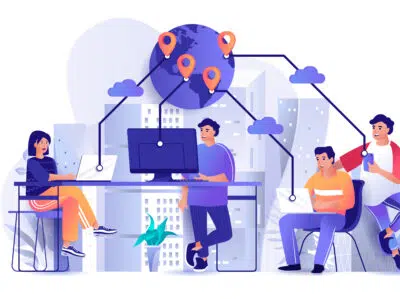How do you measure DEI at work?

Six reasons to consider flexible staffing during times of uncertainty
May 10, 2022
Eight things about professional staffing you may not have known
May 10, 2022
Diversity teamwork with joined hands
People form the crux of a successful business, and creating an organisational culture where people can flourish on both professional and personal fronts requires organisations to bring Diversity, Equity and Inclusion (DEI) to the forefront. DEI at the workplace is a host of programmes and policies formulated by the business, which ensure hiring a diverse workforce and fair practices for all employees, and centres on employee well-being.
At the workplace, diversity includes all the ways that people can be different. Differences in gender, gender identity, sexual orientation, age, socioeconomic status, race, ethnicity, mental and physical abilities, perspectives, ideas and values are all various components of diversity. Equity provides for fair and unbiased opportunities and practices for every employee, in every sphere of the organisation: contribution, compensation, learning and growth. Inclusive practices create a sense of belonging for each employee and let people be their true selves while adhering to the values and culture promoted by the organisation. Each of these prongs supports and props up the other — there is no diversity without inclusion, and equitable practices promote inclusion and diversity.
In business, DEI matters because it fosters a healthy organisational culture, which in turn leads to better employee retention, unique approaches and a happy workforce. A secure workplace culture lays the groundwork for innovation and better productivity, where employees can focus on work and not worry about acceptance or equity.
Implementing DEI
To hire diverse candidates, organisations must have defined DEI recruitment strategies in place. Effective implementation requires the DEI culture to percolate across all departments and levels of the organisation. Companies that implement DEI successfully are likely to edge out their less-diverse counterparts. A McKinsey study found that organisations in the top quartile for gender diversity on executive teams were 25 per cent more likely to have above-average profitability than businesses in the bottom quartile
There are several tools and techniques to measure DEI success; there is no one size fits all. HR professionals must help business leaders identify DEI goals, formulate and execute a diversity hiring strategy, work with managers to analyse business processes, set benchmarks, and help to identify and track metrics. Companies must adopt a custom approach to measure DEI success, based on business goals and their DEI strategy.
How to measure DEI success
While DEI at the workplace is now a management priority, tracking progress is slightly tricky. The most effective DEI initiatives would be the ones that are backed by top management; measurable over a given timeframe; and, intertwined into existing organisation processes. While some components of diversity can be easily measured, quantifying the success of inclusive initiatives poses challenges. For example, businesses can track workforce diversity vis-a-vis the diversity of job applications to determine whether there is a hiring bias, but it’s difficult to capture the employee perception of an inclusive workplace. This becomes even more challenging with the remote and hybrid work environments. Businesses must, thus, identify the right metrics to track DEI success.
Representation of certain groups of people in the workforce (such as by age, gender, ethnicity or race) is a measure of how diverse the workforce is. Recruitment bias can be determined by measuring the diversity of the workforce against. the diversity of the job applicants. Diversity across levels in the organisation is another important metric that can be tracked. For example, whether there is adequate representation of women in top management can be measured and tracked.
Qualitative measures of inclusion can be achieved by measuring job retention amongst diverse hires and employee feedback. Conducting specific surveys on the various dimensions of inclusion such as how the organisation handles differences, fair and just treatment of diverse employees, decision-making abilities, perception about safety and security at the workplace, trust and the feeling of “belonging” to the organisation help determine how inclusive the organisation is. Promotions, opportunities for employee development, lateral shifts across departments, rewards and recognition and compensation amongst diverse employees are some of the measures of how “equitable” the organisation is.
Successful DEI can be achieved with an employee-centric approach, where DEI initiatives are tied into daily business processes. Careernet Prism offers a wide range of diversity and inclusion solutions to help businesses build an inclusive work environment, create a diverse talent pool, track progress and meet their DEI goals. Evaluating DEI progress helps organisations stay focused on the right strategies to build an inclusive and equitable workspace with a diverse workforce.


